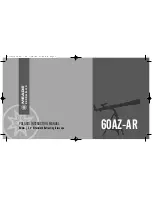
3
Levenhuk Ra
R66 ED
Levenhuk Ra
R66 ED Carbon
Levenhuk Ra
R72 ED
Levenhuk Ra
R80 ED
Levenhuk Ra
R80 ED Carbon
Optical scheme
apochromatic refractor
Optics material
ED
Optics coating
fully multi-coated
Aperture, mm
66
66
72
80
80
Focal length, mm
400
400
432
500
500
Focal ratio
f/6
f/6
f/6
f/6.25
f/6.25
Highest practical power, x
132
132
144
160
160
Resolution threshold,
arcseconds
1.75
1.75
1.61
1.45
1.45
Focuser
1.25" dual-speed
Crayford
1.25" dual-speed
Crayford
2" dual-speed
Crayford
2" rack-and-pinion
dual speed focuser
2" dual-speed
Crayford
Optical tube material
anodized aluminum
carbon fiber
anodized aluminum
anodized aluminum
carbon fiber
Tube-mount assembly system
quick-release 1/4" thumbscrew
Aluminum case
+
Cleaning wipe
+
Protective cap
1pc for objective, 1pc for focuser
The manufacturer reserves the right to make changes to the product range and specifications without prior notice.
Care and maintenance
Specifications
•
Never, under any circumstances, look directly at the Sun through this device without a special filter, or look at another
bright source of light or at a laser, as it may cause PERMANENT RETINAL DAMAGE and may lead to BLINDNESS.
•
Take the necessary precautions when using the device with children or others who have not read or who do not fully
understand these instructions.
•
Do not try to disassemble the device on your own for any reason. For repairs and cleaning of any kind, please contact your
local specialized service center.
•
Stop using the device if the lens fogs up. Do not wipe the lens! Remove moisture with a hair dryer or point the telescope
downward until the moisture naturally evaporates.
•
Protect the device from sudden impact and excessive mechanical force.
•
Do not touch the optical surfaces with your fingers. Clean the lens surface with compressed air or a soft lens cleaning wipe. To
clean the device exterior, use only the special cleaning wipes and special tools that are recommended for cleaning the optics.
•
Store the device in a dry, cool place away from hazardous acids and other chemicals, away from heaters, open fire, and other
sources of high temperatures.
•
Replace the dust cap over the front end of the telescope whenever it is not in use. Always put eyepieces in their protective
cases and cover them with their caps. This prevents dust or dirt from settling on the mirror or lens surfaces.
•
Lubricate the mechanical components with metal and plastic connecting parts. Components to be lubricated:
•
Optical tube;
•
Fine mechanics (focuser rail, telescope optical tube microfocuser);
•
Mounting;
•
Worm-and-worm pairs, bearings, cogs, threaded mounting gears.
Use all-purpose silicon-based greases with an operating temperature range of −60 … +180°С (−76 … +356°F).
•
If a part of the device or the battery is swallowed, seek medical attention immediately.
•
Children should use the device under adult supervision only.
Keep in mind that every telescope has a practical power limit of 1.5—2D (D is the aperture of the telescope in mm). At higher
powers, an image will always be dimmer and less sharp; the viewing conditions (the "seeing") may also affect the quality of
resulting images. It is recommended to begin observations at low magnifications (longest focal length). After you have located
the desired object, you can try switching to a high-power eyepiece, if seeing conditions permit.
Astrophotography
Most CCD cameras have a 1.25" or 2" barrel. Simply insert the nosepiece of the CCD camera or the adapter into the focuser and
lock it place with two thumbscrews.
To attach a DSLR camera, you will need an appropriate T-ring and a camera adapter. Simply attach the T-ring to the camera body
and thread the camera adapter onto the T-ring. Insert the barrel of the camera adapter into the focuser and secure it in place
with two thumbscrews.
You may want to consider using a remote shutter release instead of the shutter release on the camera. Touching the camera may
shake the instrument and blur the resulting image. Also, make sure the tripod is steady.



























